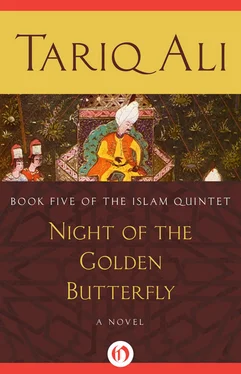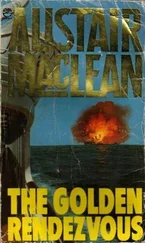‘We’ll get married when we want, Mom,’ said Suleiman. There’s no pressure on us here. This isn’t Lahore or London.’
There was nothing more to say. Soon Neelam arrived with the children and stayed a week. She, too, it would appear, loved You-shi at first sight, and they became inseparable. You-shi took charge of the children and went with them to horrible, ugly theme parks but also to the Forbidden City, which will, I’m sure, soon be sold off to some billionaire as private property once the crisis subsides a little. Perhaps Zhang Yimou can buy it and make it the centre of a pulp film industry. There are things that still make me angry, which surprises Hanif, who always regarded me as apolitical.
I decided to leave my brother and sister-in-law alone for a while. Their house had become a hotel. Suleiman and You-shi took me to Dali and then Kunming. On the way to Dali they told me that they lived together in an old apartment overlooking the lake. The ‘old apartment’ is tastefully furnished and very comfortable. They live and behave as if they were already married, but I never discuss these matters with them.
I walked by the lake often, thinking about the past. One day, even though it was sunny and warm, I found myself shivering. I was overwhelmed by emotion, remembering Elder Granny’s stories about this place. I walked a great deal that day, trying to imagine what Dali must have been like when Sultan Suleiman was alive. I looked at the people and wondered whether their forebears had been among those who had stood in the streets and wept on the day of the surrender. My thoughts were constantly interrupted by the noise of traffic and car horns. Many tourists visit this city without being aware of what took place here only recently.
After a week, we went to Kunming and visited the museum. Here another surprise awaited me — something that I had never even thought of since I wrote a brief account of the historical events in this region for you. Naturally the story of the rebellion is all here, but presented in neutral terms. Very factual, even though I couldn’t help but feel that the massacres in Dali that took place after our defeat were underplayed. Perhaps time and all the deaths China has suffered since then have blunted their sensitivities about the earlier past. It seems different when you view history far away from the country where it is taking place. Often you can see some things much more clearly, but also lose sight of others, from a distance. When I view the lake in Dali from the window of the ‘old apartment’, I see it glimmering in the sun or its colour changing when it’s cloudy, but till you go on the lake you can’t see that it has become polluted, or spot the occasional dead fish that floats to the surface.
As we were leaving the museum I happened to mention to the curator that we were direct descendants of Dù Wénxiù. The old man’s face lit up. He dragged all three of us to his office. He was literally trembling with excitement. I couldn’t fully understand the reason for this till he opened the visitors’ book. This was normally the preserve of visiting dignitaries, and Arab names littered the pages. What he wanted me to read was the following message:
‘We are the descendants of Dù Wénxiù. Our great-great-grandmother was sent by Sultan Suleiman to Cochin China. She settled there as a trader, with her child by him, and was pregnant with another. They all survived. If any other descendants ever visit this museum and read these lines, please get in touch with us in Ho Chi Minh City where we have always lived. There is another branch of the family that moved to California after April 1975, but we do not maintain any contact with them. These are all our phone numbers and my name is a Vietnamese one: Thu Van.’
Now I was trembling. The curator ordered some tea. I explained our roots to him and he asked for all the family photographs to be copied and sent to him as well as the letter the sultan’s sister in Burma had written to Elder Granny. They wanted to display them in the museum. The news of this unexpected discovery caused a big stir in Beijing and in Isloo. Everyone’s first impulse was to hop on a plane to Ho Chi Minh City, but before any of that could happen I had to make the phone call. Would Thu Van speak English or French? They must have stopped speaking Chinese a long time ago. I wanted Hanif next to me when I made the call. I don’t know why, but I wanted him to help us decide what to do. Suleiman was a bit upset and suggested wisely that I wait a while and let the news sink in properly. After all, there was no reason to hurry. We knew where they were. I think he was also concerned that too many shocks were not good for his mother.
Zahid, when I rang him, understood my needs better. I should discuss it with Confucius. Strange how Zahid won’t call him Hanif at all, and, secretly, Chiao-fu would rather be called Confucius. I had already noticed that whenever there was a call from Zahid and once from you, Yu-chih would shout, ‘Confucius! Phone.’ And he would come running with the big grin that I remembered so well.
So I flew back to Beijing, and Yu-chih collected me from the airport. She had never known Chiao-fu/Hanif/Confucius so relaxed and happy. They wanted to adopt a child and had begun to make inquiries. The old couple were fine and they saw them every weekend. More than that she didn’t say. She let Hanif tell me that he was fed up with his job. He didn’t like being an economist and was going to suggest to Henri that instead of writing a sharp academic-style critique of the pitfalls inherent in the Chinese economy or a sociological study of festivals, he now wanted to, reconstruct the path from 1949 to 2009. He would call it ‘Capitalist Roaders and the Road’. When I looked at him critically he grinned. ‘Don’t ring your husband and the one you wanted as your husband just yet. I’m not reverting to any crazy Maoism. I know what all that cost this country, and unnecessarily. They destroyed our hopes. I know that better than most. So it will be very critical of the Great Helmsman, but also of those who came after him. Those who ordered our soldiers to fire on the students in 1989, those who crush peasant uprisings today just like the campaign to rid China of fleas during the Communist period. And those who buy radical intellectuals like we do noodles in Oxen Street.’ I was relieved to hear all this, and I think he will write a good book. He certainly knows both sides. Perhaps Henri should be alerted to the change of plan.
I did ask whether if Hanif gave up his job they would be able to afford the life they were used to now, just on Yu-chih’s salary, a question that provoked only mirth. Like Suleiman, his uncle had played the financial market and accumulated if not vast at least sufficient wealth to live comfortably for the rest of his life. I asked whether he would have gone in this direction had there been no memory lapse. He did not know. Perhaps he would have come back to Lahore and returned to physics. How could he say?
I am still old-fashioned enough to be slightly repelled by this, but both Suleiman and Hanif insist (funny how similar they are in so many ways. My mother used to see it, too) that they exploited the system more than it did them and now they will pay it all back in projects that help people. Suleiman, in particular, is in a state of permanent shock at what he is seeing in Yunnan and elsewhere in the country, the effects of belated industrialization on the ecology of this country. ‘Animals are dying, Mom, and people are being treated like animals, except in theme parks.’ This passionate manner of feeling and expressing feelings is common to both uncle and nephew.
With Hanif seated next to me and listening on the other phone, I made the call to Ho Chi Minh City. Thu Van answered. I asked what language would be easiest for her. She repeated the question to me. She spoke five languages, including Chinese, and worked as an official interpreter. I explained who I was and that I was ringing in response to her message. Her screams could be heard in our kitchen. Then she shouted the news to her mother. She wanted to get on a plane and come over immediately with her mother to see us. We could come to them the following year. There was no stopping her, and so I gave Hanif’s details and said we would pick them up at the airport, but reminded her to bring as many old photographs as possible of the family. They did not put us to the trouble of either picking or putting them up. They arrived within three days and stayed in a hotel they had always used before. They brushed aside all formalities. We looked at each other, but there was no resemblance. Thu Van’s mother did remind me slightly of Elder Granny, but this could just be my overly sentimental and charged imagination.
Читать дальше












